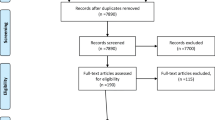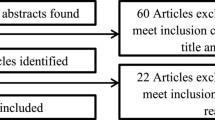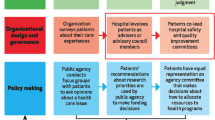Abstract
BACKGROUND: Physician-initiated advance care planning is desirable, effective, and routinely indicated for competent adult patients, but doctors are often reluctant to begin the necessary conversations.
OBJECTIVE: To determine whether patients are willing and able to designate a surrogate for medical decision making, when asked to do so as part of routine medical inquiry.
DESIGN, PATIENTS, MEASUREMENTS: A survey asking patients to name a health care agent was designed and administered in the context of routine clinical care. Participants were drawn from a consecutive sample of 309 competent adult outpatients. Data were analyzed using ordinary descriptive statistics.
RESULTS: Two hundred ninety-eight of 309 patients (response rate, 96%) completed the survey and were willing and able to specify a proxy for health care. One third of married participants did not choose their spouse as proxy.
CONCLUSIONS: Asking patients to identify a surrogate for medical decision making opens the door for ongoing individualized medical care planning in the context of ordinary patient-physician interaction. This approach is applicable to all competent adults. Documenting proxy choice protects a patient’s wishes and preferences until more definitive planning is accomplished.
Similar content being viewed by others
References
Snyder L, Leffler C. Ethics manual: fifth edition. Ann Intern Med. 2005;142:560–82.
Kirschner KL. When written advance directives are not enough. Clin Geriatr Med. 2005;21:193–209.
Emanuel LL, von Gunten CF, Ferris FD. Advance care planning. Arch Fam Med. 2000;9:1181–7.
Cox DM, Sachs GA. Advance directives and the patient self-determination act. Clin Geriatr Med. 1994;10:431–43.
Lo B, Steinbrook R. Resuscitating advance directives. Arch Intern Med. 2004;164:1501–6.
Fagerlin A, Schneider CE. Enough. The failure of the living will. Hastings Cent Rep. 2004;34:30–42.
President’s Council on Bioethics. Taking care: ethical care giving in our aging society. September 2005. Available at: http://www.bioethics.gov/reports/taking_care/index.html. Accessed April 17, 2006.
Cassell EJ. The Schiavo case: a medical perspective. Hastings Cent Rep. 2005;35:22–3.
Singer PA, Martin DK, Lavery JV, Thiel EC, Kelner M, Mendelssohn DC. Reconceptualizing advance care planning from the patient’s perspective. Arch Intern Med. 1998;158:879–84.
Bomba PA. Advance care planning along the continuum. Case Manager. 2005;16:68–72.
Miles SH, Koepp R, Weber EP. Advance end-of-life treatment planning. A research review. Arch Intern Med. 1996;156:1062–8.
Gillick MR. A broader role for advance medical planning. Ann Intern Med. 1995;123:621–4.
Doukas D. Advance directives in patient care: if you ask, they will tell you. Am Fam Physician. 1999;59:530–1.
Sypher B. Initiating discussions about advance directives: the family physician’s role. Am Fam Physician. 2002;65:2443–4.
Morrison RS, Meier DE. High rates of advance care planning in New York City’s elderly population. Arch Intern Med. 2004;164:2421–6.
Lipkin KM. Advance medical planning. Ann Intern Med. 1996;124:1017.
Lo B. Advance care planning. Am J Geriatr Cardiol. 2004;13:316–20.
Aitken PV Jr. Incorporating advance care planning into family practice [see comment]. Am Fam Physician. 1999;59:605–14, 617–20.
Teno JM, Lynn J. Putting advance-care planning into action. J Clin Ethics. 1996;7:205–13.
Sachs GA. Increasing the prevalence of advance care planning. Hastings Cent Rep. 1994;24:S13–6.
Hopp FP. Preferences for surrogate decision makers, informal communication, and advance directives among community-dwelling elders: results from a national study. Gerontologist. 2000;40:449–57.
Azoulay E, Pochard F, Chevret S, et al. Opinions about surrogate designation: a population survey in France. Crit Care Med. 2003;31:1711–4.
Quill TE. Terri Schiavo—a tragedy compounded. N Engl J Med. 2005;352:1630–3.
Tolle S. A study in what not to do. Schiavo case reveals dangers of letting strangers make end-of-life decisions. Mod Health care. 2005;35:22.
Author information
Authors and Affiliations
Corresponding author
Additional information
The author has no funding sources and no conflicts of interest to report.
A paper based on this investigation was presented as:
Jump Starting Advance Care Planning in the Context of Standard Medical Treatment: A Return to Basics
K. Michael Lipkin, MD; Nina Lipkin, MA
Rights and permissions
About this article
Cite this article
Lipkin, K.M. Brief report: Identifying a proxy for health care as part of routine medical inquiry. J Gen Intern Med 21, 1188–1191 (2006). https://doi.org/10.1111/j.1525-1497.2006.00570.x
Received:
Revised:
Accepted:
Issue Date:
DOI: https://doi.org/10.1111/j.1525-1497.2006.00570.x




